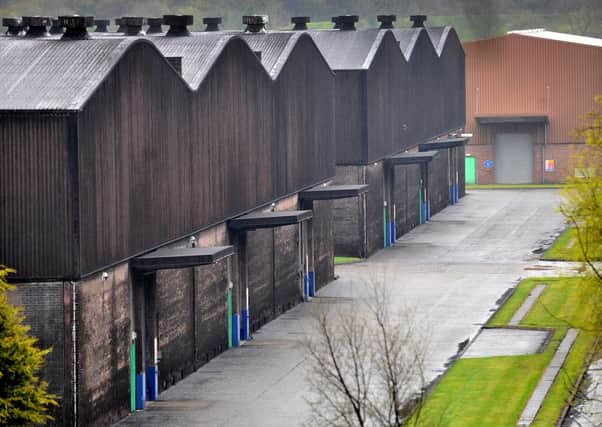Couple suing drinks giant over angel's share fungus claims


Thomas and Gail Chalmers from Bonnybridge allege that the growth has attacked wooden garden furniture and paving stones and a sundeck was destroyed.
They maintain that it has discoloured garden tables and chairs, potted plants and outdoor toys and left the roof with visible black staining.
Advertisement
Hide AdAdvertisement
Hide AdThey complain that they need to have their house and car cleaned regularly in a continuing attempt to control the fungus.
Diageo, however, is now seeking to have the £100,000 damages claim brought against it dismissed.
It contends that the blackening complained of is indistinguishable visually or in impact from that found in a wide range of other locations, and that staining on a property such as theirs can be dealt with “in the course of normal housekeeping” such as cleaning and re-painting.
In the action the firm said: “Cosmetic discolouration has no impact on property value and has had no impact on the value of properties in the Bonnybridge area.
Advertisement
Hide AdAdvertisement
Hide Ad“If there is any impact on property values, which is denied, it is caused by the publicity sought and obtained by claimants such as the pursuers and their advisers.”
Diageo age whisky in nine bonded warehouses at a site in Bonnybridge near the Woodlea Park development where the couple own a house.
The claimants said that as whisky matures ethanol evaporates from the casks into the surrounding atmosphere in a process commonly known as the angel’s share.
They maintain that ethanol vapour in relatively high humidity strongly stimulates the germination and growth of a fungus – baudoinia compniacensis – known as ‘the warehouse staining fungus’.
Advertisement
Hide AdAdvertisement
Hide AdThey allege that the exterior of their house and other property, including a car, has been discoloured by “an unsightly black fungus”.
They contend that the release of ethanol vapour from the warehouses amounts to a nuisance which is the firm’s fault.
They maintain: “The presence of black fungus on the houses throughout the Woodlea Park development is obvious. Black fungus has been associated with bonded warehouses across Scotland for a considerable number of decades.”
Diageo Scotland Ltd said that during the maturation of whisky, as an essential part of the process, air enters casks and ethanol and other substances leave.
Advertisement
Hide AdAdvertisement
Hide AdIt maintains that any ethanol deriving from its operation is at levels so low as not to be capable of ready detection and measurement.
Diageo said its development at Bonnybridge became operational in 1979, but the neighbouring housing estate was not built until about 2002.
It denies fault and contends that staining in properties, including houses in the Woodlea Park estate, may arise for a variety of reasons, including atmospheric pollution and dirt.
The drinks firm said: “Scotch Whisky, a product of materiel significance to the Scottish and UK economy with an annual export value in excess of pounds £4.2 billion, is matured in warehouses throughout Scotland not materially different from those of the defenders at Bonnybridge.”
Advertisement
Hide AdAdvertisement
Hide Ad“It has been matured in not materially dissimilar conditions for hundreds of years,” it said.
“Not only is the spirit in the warehouses being made in accordance with all relevant statutory and regulatory requirements, it is being matured in a manner essential for the resulting product to qualify for protection as Scotch Whisky.”
“That requires both ventilation and the natural exposure of the maturing product to the prevailing climate,” it said.
Craig Connal QC, for Diageo, told a judge at a procedural hearing in the case that he was seeking dismissal of the action. He challenged whether a relevant and specific case of nuisance had been set out by the claimants.
The hearing before Lord Ericht continues.